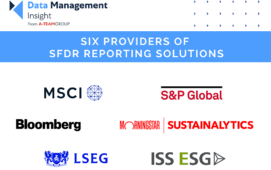
The UK’s Financial Conduct Authority (FCA) has published a discussion paper on a prudential regime for UK investment firms: marking the first step in introducing a set of prudential rules for investment firms to better reflect their business models and the risk of harm they pose to consumers and markets.
“We have long advocated for a bespoke prudential regime for investment firms,” says interim CEO Christopher Woolard. “A new UK regime would represent a significant improvement in the prudential regulation of investment firms. For the first time, it would deliver a regime that has been designed with investment firms in mind.”
The proposed guidelines will affect all solo-regulated investment firms that are currently authorised under MiFID, as well as Collective Portfolio Management Investment Firms and investment firms authorised by the Prudential Regulation Authority.
Currently most investment firms follow very similar prudential rules as deposit taking credit institutions agreed through the Basel framework. However, last year the EU published its requirements for a regime specifically designed for investment firms, the Investment Firm Directive and Regulation, due to be implemented in the EU by the end of June 2021. Whilst the UK was a member of the EU, the relevant UK authorities were involved in the development of the EU’s regime.
As the regime will be introduced after the scheduled end of the UK’s transition period to exit the EU, the UK will now introduce its own prudential regime for investment firms, as announced in the Chancellor’s statement in the Budget in March.
Separately, the FCA is also currently consulting on new requirements for operational resilience, and expects to publish its final rules in Q1 2021, including further information on the links between its own operational resilience policy and the European Banking Authority (EBA) Guidelines that were published in November 2019 on ICT and security risk management. In a statement last week, the regulator confirmed that it intends to comply with these guidelines, and warned credit institutions, investment firms and PSPs that they will be expected to make every effort to comply with the new rules from 30 June 2020, when they enter into force.
Subscribe to our newsletter



